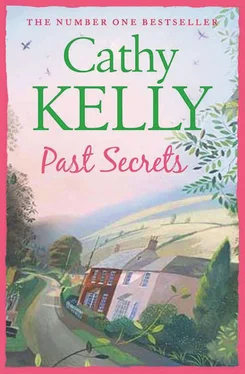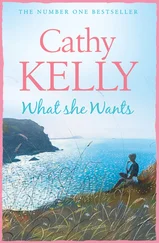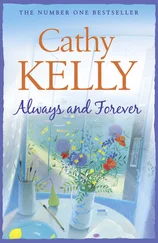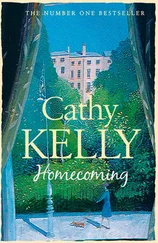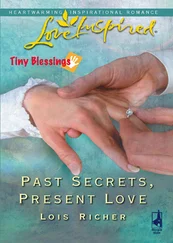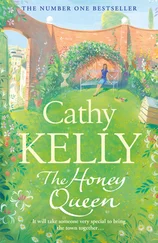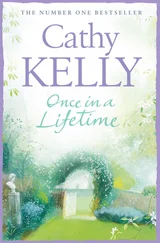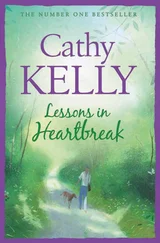1 ...6 7 8 10 11 12 ...27 ‘Some of it is,’ Faye agreed, trying to see things from her daughter’s point of view. It was an unseasonably warm Saturday for the end of April and they’d spent the afternoon in the garden, Amber keen to start a dusting of golden tan on her face.
With the iron discipline Faye brought to every area of her life, the housework in the Reid household was always up to date. But when it came to gardening, she didn’t know weed from plant. Occasionally, she wished she was more like Christie Devlin who’d created an exquisite all-white garden at the front of her house. Faye had never seen Christie’s back garden, had never seen the inside of the Devlins’ house, actually, because they barely knew each other in spite of living mere doors apart for ten years, but she’d have bet that it was just as beautiful, with frothy roses and trailing blooms that flourished under Christie’s magic hands.
On this particular Saturday, Faye wore a tired pale-pink polo shirt over cheap loose-fit jeans that did nothing for her shape, and was trying to uproot any weeds she could identify. It all looked weedy to her. Surely that big thing that looked strangely like a marijuana plant couldn’t be a flower? Although since she’d thrown those packets of wildflower seeds every which way last year, it was hard to tell. That would be a fine advert for sensible single parenthood, wouldn’t it: a hash plant in Faye Reid’s garden.
She grinned. If there was any illegal vegetation in her garden, nobody would cast aspersions on the arch-conservative Mrs Reid, the very model of a career-minded widow with an equally model teenage daughter. Faye had worked very hard to reach that place in the local psyche. She’d learned that a single woman bringing up a child needed to be beyond reproach. Nobody would ever have cause to accuse her of trying to steal their husband or of letting her daughter run wild.
‘I like songs like “Respect”,’ Amber went on. She was lying on her tummy on a rug on the lawn, her feet in the air and a school book propped up in front of her. ‘Not sad ones where everyone’s depressed, like no guy will ever look at them again ’cos they messed it up the first time.’
Faye paused in her weeding.
‘You’ve got to remember, Amber, that the old jazz and rhythm-and-blues songs are from another age, when life was different and women didn’t have the same opportunities we have today,’ she said, wiping her hands on her jeans so she could clip a few strands of light-brown hair back. Faye didn’t bother with her hair much: shoulder length, wavy and undyed for many years, it got washed, tied back firmly and treated to conditioner when she had the time, which wasn’t often.
‘They didn’t have contraception, any hope of equal pay or equal rights in lots of things. So it might sound depressing to you now,’ she explained, ‘but they were brave. I think they were feminists in their own time because they sang when it wasn’t considered a decent job for women. They didn’t have what we have now. Girl power hadn’t been invented then.’
‘Yeah, I know that, but why do all the women hang around waiting for the lover man to turn up?’ Amber wanted to know, abandoning her book with a speed that showed she hadn’t been that engrossed in revising maths equations. ‘The women do all the waiting in these songs and in the old movies. If a guy doesn’t respect you, he’s going to walk all over you. They’re waiting for him to make it right. It’s so passive. You don’t need girl power to see that.’
‘You and Ella have got to stop reading the therapist’s sections in women’s magazines,’ Faye groaned, but she was smiling. ‘I thought you were going to study art, not psychotherapy.’
‘Ha ha. All I’m saying is that some people want to be rescued and that’s, like, not going to happen.’ Amber’s small face was determined, her chin lifted to signify that life would have to take her on her terms, and not the other way round. Faye felt the familiar clammy grip of a mother’s anxiety on her heart. Amber was full of energy and hope, for all her careful studying of women’s magazines’ problem pages.
What if one day, despite all Faye’s efforts at protecting her daughter, someone or something destroyed that energy and hope?
‘My little suffragette.’
Amber looked pleased. ‘I like to think so,’ she said, ‘only I’m the modern version. No chaining yourself to the railings involved. I’m glad it’s different now.’
Faye said nothing. It was hard to tell a seventeen-year-old with her whole life ahead of her that heartache and loss crossed every century, women’s rights notwithstanding. She sat back on her heels, tired from gardening. If only she could wave a wand and conjure up a lovely garden: then she’d take care of it. But creating it was another matter.
Her house was one of the smallest on Summer Street, the first of the eight railway cottages lined up in a terrace like an illustration in a Victorian picturebook. The painted front doors – theirs was teal blue – carved fascia boards and perfectly square windows were like something a child would draw.
Most of the cottages had been extended at the back. Faye’s extension had made the kitchen bigger, creating a T-shaped upstairs attic bedroom for Amber, and taking the already tiny garden down to shoebox size. It had a small block of mossy lawn, flower beds on either side and a rackety garden shed at the bottom.
‘I can’t imagine Gran waiting for a man to fix what was wrong,’ Amber added, ‘and she grew up when it was different. I mean, she takes the car to get it fixed, not Stan. She’s a real role model. I tell all the girls in school about her and they think she’s amazing. They think you’re amazing too, Mum, because you don’t take crap from anyone.’
‘No,’ said Faye, ignoring the use of the word crap and wondering if that would be her only epitaph. Here lies Faye Reid, who never took crap from anyone. It wasn’t what she’d hoped she’d be remembered for when she was younger, but it certainly fitted now. When she’d been Amber’s age, she’d wanted to be thought of as exciting and glamorous, a mysterious woman loved by many men. Teenage dreams were funny in retrospect, weren’t they? She’d bet that Amber would never imagine that her mother could think like that. Before Amber had been born, Faye had been a very different person altogether, not the cautious, dowdy mother she’d become.
‘Nor does Gran,’ Amber went on. ‘And not everyone her age is like that. Ella’s grandmother makes them all run round after her like headless chickens since she had her heart operation. Ella’s terrified her grandmother is going to end up living with them. She says they’ll all have to be on drugs to cope. I’m glad Gran’s not like that.’
Faye’s widowed mother, Josie, had got married again a few years previously to a widower who understood that his new wife had got too used to the independence of almost twenty years of being on her own to ever be under a man’s thumb again. A retired teacher with boundless patience, Stan was a calm breeze to Josie’s cyclone of activity. Josie ran her local meals on wheels, while Stan was the Martha to her Mary.
‘Your gran was on her own for a long time so she had to learn to take care of herself,’ Faye said absently.
‘Like you.’
‘Yes, like me.’
‘I was thinking.’ Amber swung her legs back and forth. ‘About Dad being dead and Granddad being dead, and now Gran is married to Stan and, well…When you go to heaven, how do they work it out if you’ve had more than one husband? I mean, if Stan dies and then Gran dies, who does she live with in heaven – Granddad or Stan? It’s a problem, isn’t it? They never talked about that in religion classes. Just that we’d all be happy but how?’
Читать дальше
